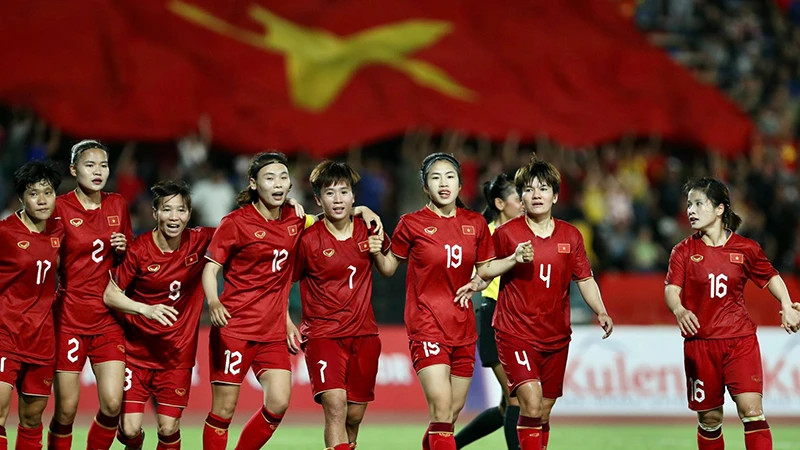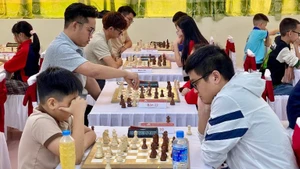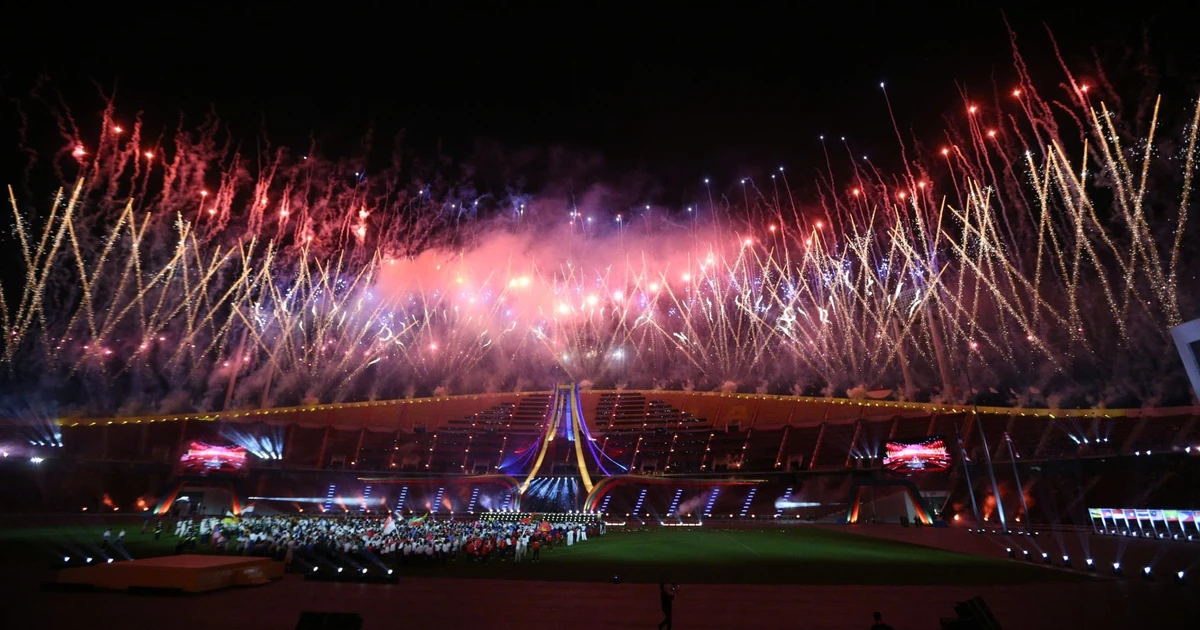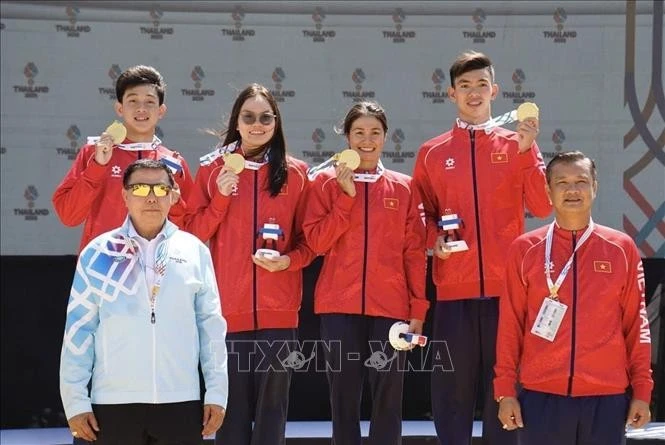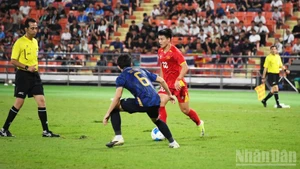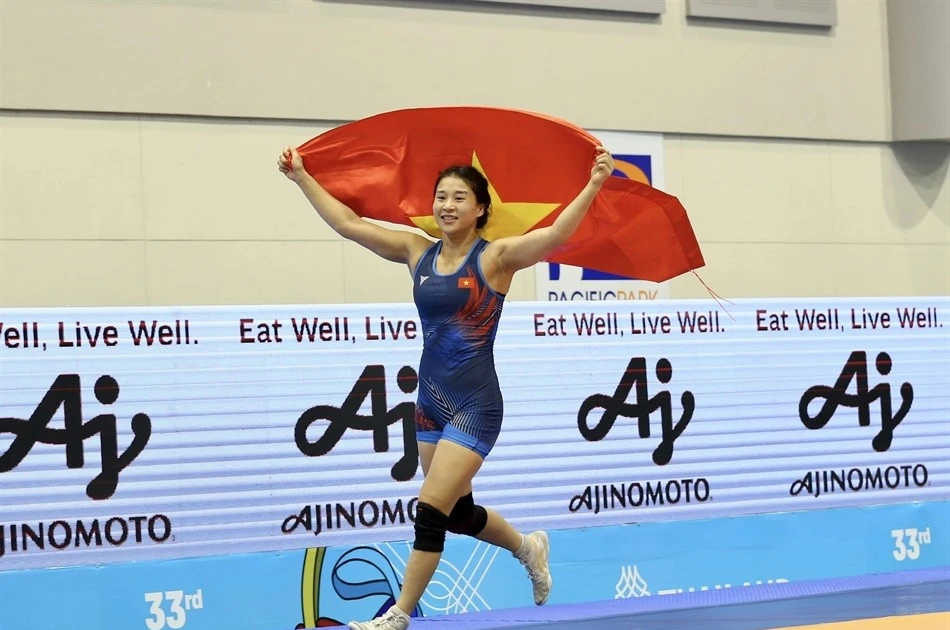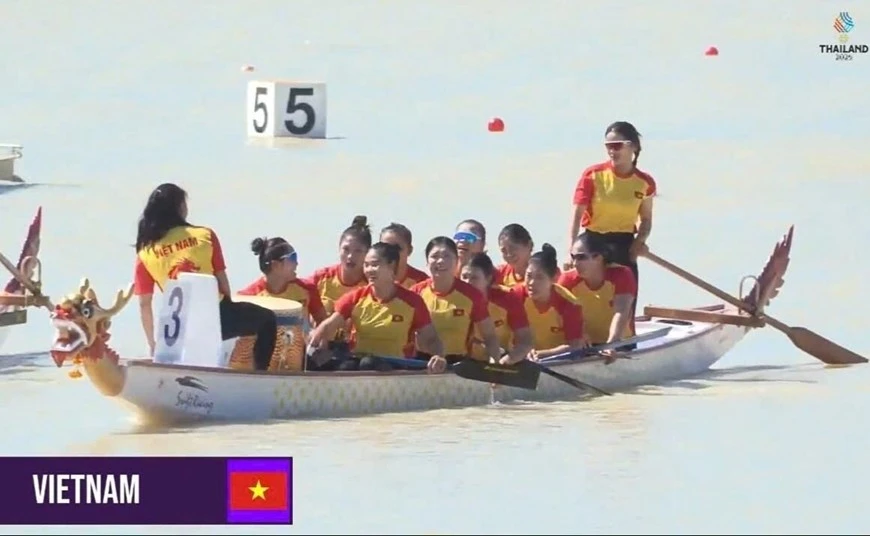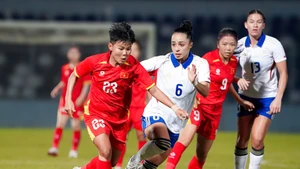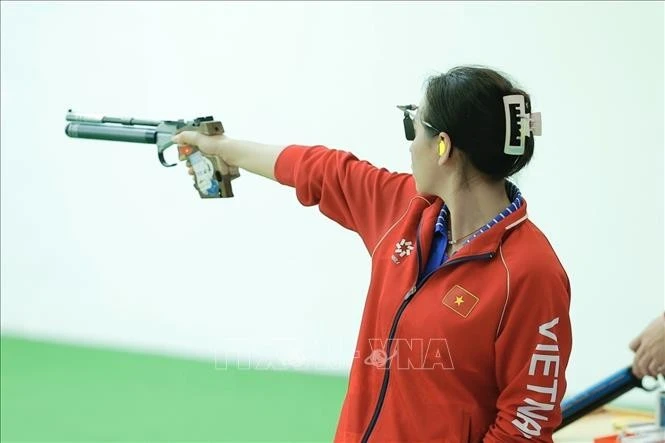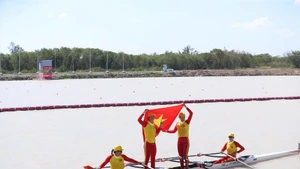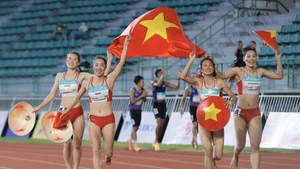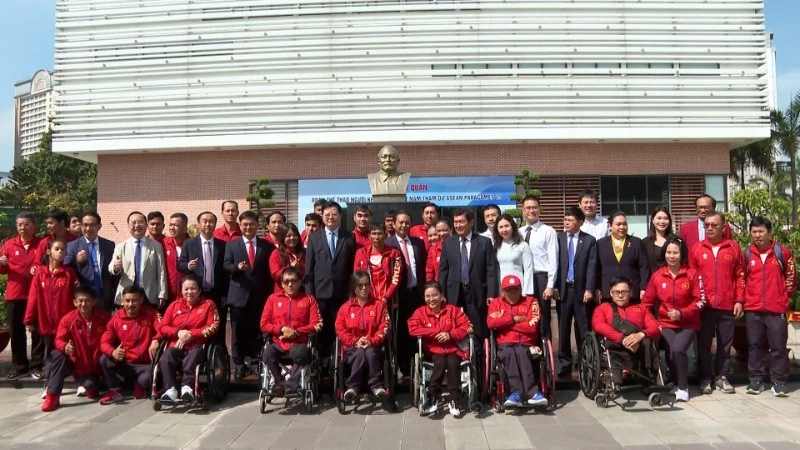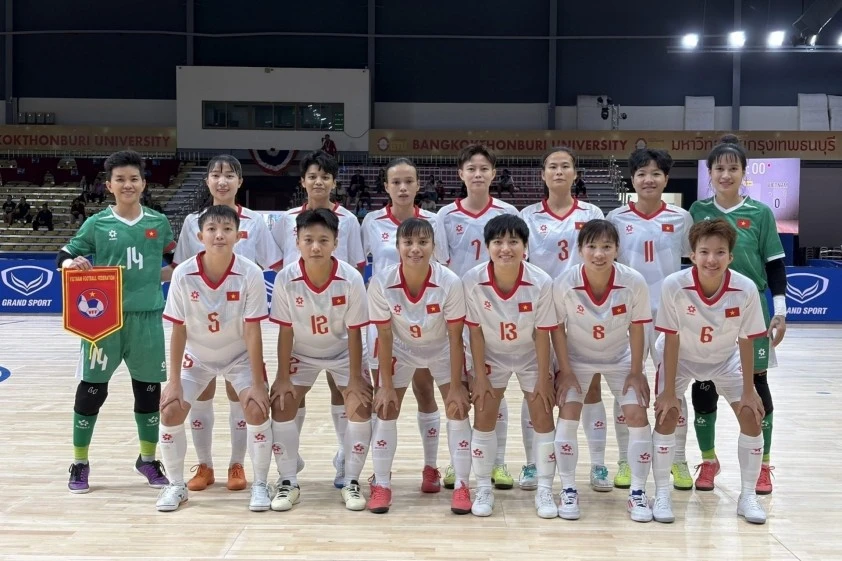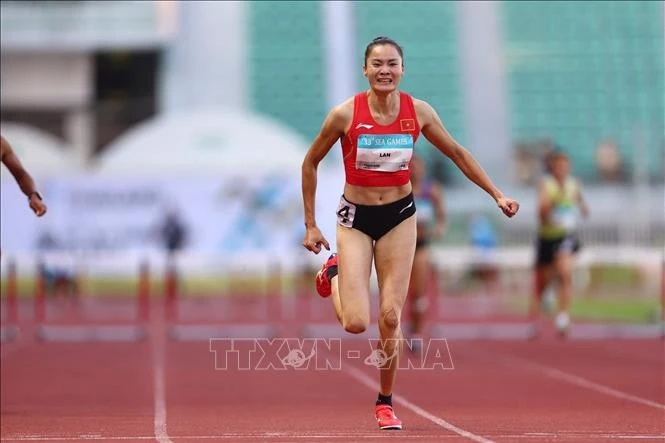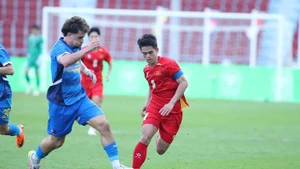The outstanding achievement of Vietnamese sports in 2023 was the top of the medal rankings at the SEA Games 32 in Cambodia. This was the first time Vietnam won first place when it was not the host of the Games. Thus, for two consecutive seasons of the SEA Games, Vietnam won first place in the medal rankings.
Bright spots
In recent years, especially at the 31st SEA Games held in Vietnam, the country’s sports sector has been transforming to focus investment on Olympic and ASIAD sports. Therefore, in the past year, the Vietnamese sports delegation continued to win first place at SEA Games 32. Among 136 gold medals of Vietnamese athletes, 69 belonged to Olympic events, accounting for more than 50% of the gold medals. They also broke 14 SEA Games records, including six in Olympic events. It can be said that this was the most successful SEA Games of Vietnamese sports when competing abroad.
Following the Southeast Asian arena, the Vietnamese sports delegation entered the continental arena at ASIAD 19. With three gold medals, five silver medals and 19 bronze medals, Vietnam ranked 21st on the medal rankings of the Games. The most typical is the gold medal in a shooting event by shooter Pham Quang Huy in the men's 10m air pistol category.
Looking at the achievements of the Vietnamese sports delegation through two regional and continental Games, it can be seen that despite leading the last two consecutive SEA Games with an overwhelming number of gold medals, the country only ranked 21st at ASIAD 19 and behind some other countries in Southeast Asia including Thailand (12 gold medals, ranking 8th in ASIAD), Indonesia (7 gold medals, ranking 13th), Malaysia (6 gold medals, ranking 14th), the Philippines (4 gold medals, ranking 17th) and Singapore (3 gold medals and 6 silver medals, ranking 20th).
This result showed that Vietnamese sports have not paid great attention to the basic events of ASIAD and the Olympics, even taking significant steps backwards over the past ten years. At the 2012 London Olympics, Vietnam had 18 athletes qualified to compete and won a bronze medal in weightlifting. Four years later, 23 Vietnamese athletes competed at the 2016 Rio Olympics and won one gold and one silver in shooting, the highest achievement in a season of the Olympics.
However, at the 2020 Tokyo Olympics, Vietnam had only 18 athletes who passed the qualifying round and did not win any medals. For the upcoming 2024 Olympics, up to now, Vietnam has only a few athletes qualified to participate.
Five years ago, in the continental arena, Vietnam won four gold medals, 16 silver medals, and 18 bronze medals at ASIAD 18. Quach Thi Lan’s medal for track and field in the women's 400m hurdles category was promoted because the gold medalist was disqualified for doping. At ASIAD 19 in China in 2023, Vietnam won only three gold medals, including one in the Olympic shooting event.
Focusing on the goal of upgrading medals
According to sports experts, Vietnam's sports sector has many limitations and barriers to development due to mainly focusing on the SEA Games arena.
Hoang Quoc Vinh, Director of the High-Performance Sports Department 1 under the Sports Authority of Vietnam, said the first limitation is that there are not many talented young athletes, and the main reason is the lack of funding. Currently, there are only about 960 athletes nationwide participating in national youth teams. The limitation in the number of trained young athletes has affected the ability to seek and develop future sports talents.
Besides, one of the reasons causing difficulties for Vietnamese sports to improve their performance is the lack of domestic coaches qualified to train athletes for medals at the Olympics and ASIAD. For example, in weightlifting, thanks to hiring foreign experts and domestic coaches, Hoang Anh Tuan bagged a silver medal at the 2008 Olympics. However, the use of only domestic coaches was considered a reason why Vietnamese weightlifters have not been able to repeat this achievement so far.
In addition, the system of facilities serving the training of sports in Vietnam is both lacking and outdated. In high-performance sports training, the application of high science and technology, sports nutrition (including food and supplements), and conditions for healthcare, injury and psychology treatment and recovery also face many limitations.
Another problem is that Vietnamese athletes have very few opportunities to compete at international events because there are too few prestigious international tournaments held in Vietnam.
After efforts to maintain top results in the region, Vietnamese sports need to focus on investment in improving their capacity and ability to win medals at ASIAD and the Olympics events. To effectively follow this orientation, it is necessary to mobilise the highest possible resources for the sports with high ability to win medals, such as weightlifting, shooting and taekwondo.
The investment in young athletes also needs to give the best priority to events that can compete for ASIAD and Olympic medals. At the same time, it is crucial to strongly reform the training system of high-performance sports, focusing on ASIAD and Olympic goals.
